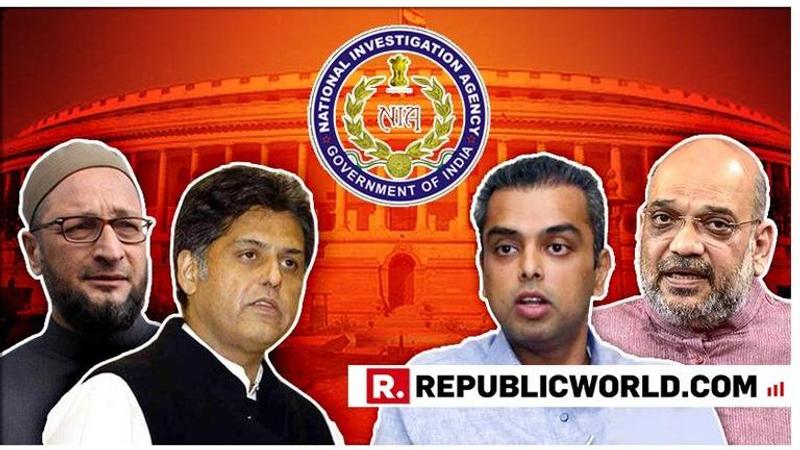Published 21:18 IST, July 15th 2019
Congress' Milind Deora welcomes passage of NIA Amendment Bill (2019) despite his party's strong fight against it in Lok Sabha
Extending support to the passage of the NIA Amendment Bill (2019), Mumbai Congress leader Milind Deora on Monday, has welcomed the move stating that the government must hasten the enactment of the Personal Data Protection Bill using the NIA's newfound freedom

Extending support to the passage of the NIA Amendment Bill (2019), Mumbai Congress leader Milind Deora on Monday, has welcomed the move stating that the government must hasten the enactment of the Personal Data Protection Bill using the NIA's newfound freedom.
Earlier in the day, after a heated debate the National Investigation Agency (Amendment) Bill that was introduced by Home Minister Amit Shah on July 8, 2019, was passed with 278 members voting in its favour and six against it. Meanwhile Deora's fellow Congress MP Manish Tewari accused the government of trying to turn India into a police state while debating the bill in the Lok Sabha.
Discussion in Parliament:
While Home Minister reiterated the stand of the government as zero tolerant, Owaisi raised questions on various NIA probe. Expressing his opposition to the bill, AIMIM chief said that various parts of the bill violated Article 14 - right to equality. Raising question on the NIA, he asked if the NIA has particular investigative techniques and has a legislative order to undertake them.
Speaking in the lower house, Minister of State G Kishan Reddy told the House that the new law will allow the NIA to probe cases of terrorism targeting Indians and Indian assets abroad, and also empower the agency to investigate cases of arms and human trafficking besides those linked to cyber terrorism.
What is the National Investigation Agency (Amendment) Bill?
The NIA was set up in 2009 in the wake of the Mumbai terror attack which had claimed 166 lives. The National Investigation Agency (Amendment) Bill proposes to amend the National Investigation Agency (NIA) Act, 2008. The Act provides for a national-level agency to investigate and prosecute offences listed in a schedule (scheduled offences). Further, the Act allows for the creation of Special Courts for the trial of scheduled offences.
Updated 21:28 IST, July 15th 2019




